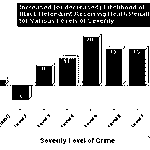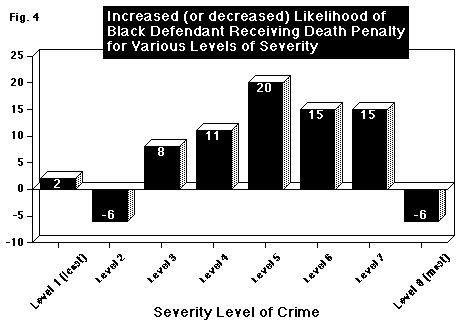
The Ethics of Death Row Inmates Volunteering for Their Own Executions: A Legal Perspective
The Case of Gary Heidnik
Gary Heidnik was the last person executed in Pennsylvania, and while he may not be a household name, he was an inspiration for the character Buffalo Bill in The Silence of the Lambs. One unusual aspect of Heidnik’s case was that he personally requested that the state courts not conduct any appellate review and expedite his execution. However, his request was denied, and he was subject to the usual appeals process that comes with a death sentence in the United States.
The Question of Inmate Autonomy
The question that arises is whether a death row inmate has the freedom to request the death penalty and whether the state would oblige. However, regardless of one’s views on the death penalty, the more important question is whether it is ethical to allow a death row inmate to seek their own death. Would that not potentially strip the surviving victims of the crime of the justice they are entitled to?
The Legal Reality
Legally, it is complicated and ethically gray, to say the least, if a death row inmate has the right to expedite their execution. However, the long and short of it is that there are legal avenues within which an inmate can speed up their own execution. This can be accomplished by waiving their rights to appeal.
Volunteering for Execution
If an inmate wanted to expedite their execution, they can do so by waiving their appeals. In capital punishment, this type of inmate is known as a “volunteer.” An inmate ruling that they are competent and making this decision voluntarily and without coercion has the right to waive their appeals so long as their state has optional appeals.
Legal Precedent
In Whitmore v. Arkansas, the Supreme Court stated that as long as the defendant is competent and understands that they will be put to death, they have the right to waive their appeals. Utah-death row prisoner Gary Gilmore became the first inmate executed after Gregg in 1977. Gilmore “withdrew his rights of appeal from Utah’s legal system and requested that the courts enforce his death sentence as soon as possible.”
Controversy Around Execution Volunteering
The most recent instance of successful execution volunteering is Florida inmate James Barnes in 2023. In a statement released by Floridians for Alternatives to the Death Penalty (FADP), “Without appointing any experts, the judge found Mr. Barnes competent to commit state-assisted suicide, and cleared the path for him to die in our name.” While society has a foundational respect for individual decision-making capacity and the freedom to exert it, whether an inmate on death row is competent and of sound mind to volunteer for their own execution is debatable.
The Psychological Impact of Being on Death Row
The psychological impact of being on death row cannot be underestimated, and as a result, most death row prisoners have struggled with mental health issues to varying degrees. When an inmate wants to kill themselves, they are not of sound mind. From society’s perspective, we are usually happy to oblige their request, but this could be the result of societal judgment and not a legal one.
The Ethics of Waiving Appeals
Legally, death row inmates have the right to waive their appeals and expedite their execution. However, the ethics are not straightforward, especially given the psychological impact of being on death row, compounded by the fact that most death row prisoners have struggled with mental health issues to varying degrees. Moreover, when almost all of your death row prisoners show clear mental disconnects between their impending execution, should they be considered “competent and of sound mind” when they volunteer for execution?
The State’s Role in Voluntary Execution
Given the legal realities, the state’s role in a death row inmate’s voluntary execution entails ensuring that the inmate is making a well-informed and voluntary decision. The law is clear, but the ethics are not, and as we continue to struggle with this complex issue, we must also consider the mental health and well-being of death row inmates in our quest for justice.
Originally Post From https://www.ajs.org/can-a-guilty-defendant-request-the-death-penalty/
Read more about this topic at
Sectarian Reflections on Lawyers’ Ethics and Death-Row …
Killing the Willing: “Volunteers,” Suicide and Competency


